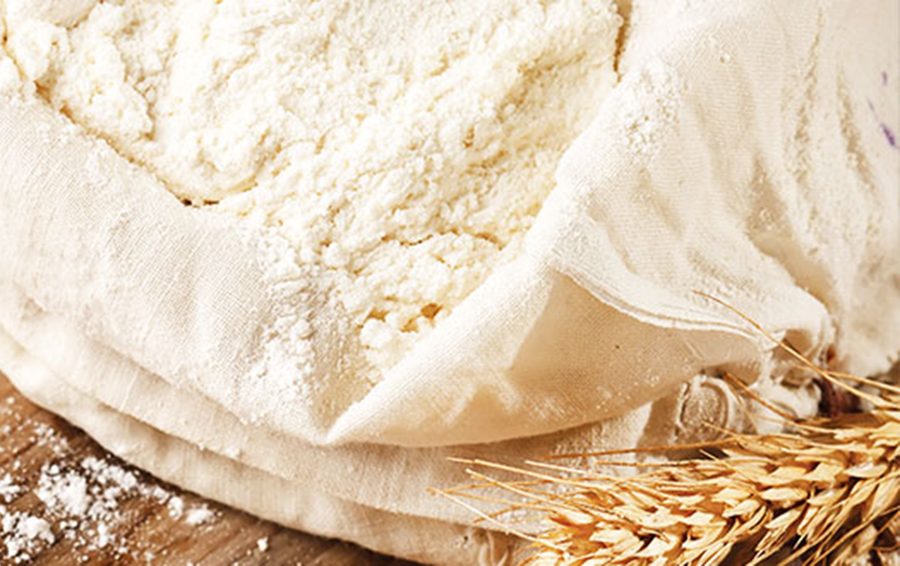It has been more than a month since the latest earnings report for Flour Mills, and during this period, its shares have increased by about 7%.
In contrast to the flat performance in the previous year (2022), the stock has recorded a Year-to-Date gain of 9.15% this year
The question now arises: will this recent upward trend persist until the next earnings release, or will there be a pullback?
Financial Performance and Challenges
Typically, a trajectory is influenced by strong or disappointing earnings, reviews and recommendations from financial analysts, profit-taking, industry or company news, etc.
On the top line, Flour Mills has been impressive. On October 27, 2023, the group disclosed its Q2 23/24 results for the period ending September 30, 2023.
The report revealed a revenue growth of 33% Year over Year (YoY), to N508.271 billion, taking the half-year revenue to N964.648 billion, representing about 63% of last year’s full revenue.
The food segment retained its position as the largest contributor, accounting for 68% of Q2 revenue. Food revenues saw a substantial 50% growth, driven by increased volumes in pasta, noodles, and other Business-to-Consumer (B2C) categories.
However, despite the commendable top-line performance, the group faced challenges in its midline and bottom-line results attributed to high input costs and foreign exchange losses, significantly impacting overall profitability.
This setback is primarily associated with the devaluation of the Naira and prevailing macroeconomic headwinds.
In response to these challenges, Flour Mills acknowledged the issues and presented an optimistic outlook:
- “FMN Plc has experienced continued strong revenue growth of 34% (Year on Year) with the gross profit growth of 53% ahead of revenue.
- The operating profit slightly dropped due to a foreign exchange loss of N28.7b in quarter two (Q2) leading to the Group loss before tax of N8.1b.
- Management remains optimistic that with the current government monetary policies at stabilizing the FOREX market, and management continues effort in sales and marketing activities geared towards boosting our top line while keeping costs under control, we expect to see improvement in our operations in the coming period.”
Management Outlook and Historical Performance
The management’s optimistic outlook holds positive implications. Investors are likely to interpret this positive stance as an indication that the company is actively addressing challenges and holds confidence in prospects.
This optimistic outlook has the potential to positively influence both investors and the stock price, fostering improved sentiment.
It is crucial to underscore that Flour Mills has a track record of consistent earnings. Over the past five years, the company has recorded impressive growth in profit after tax, surging from N4 billion in 2019 to N29.504 billion in 2023 FY. This represents a compound annual growth rate of about 49%.
This means that Flour Mills’ Profit After Tax (PAT) has, on average, grown at a rate of approximately 49% per year over the specified five-year period.
The impressive track record of consistent historical performance not only strengthens the management’s optimistic outlook but also holds significant importance for both investors and shareholders.
Furthermore, the company has demonstrated consistency in dividend payments over the last five years (2018-2022), achieving a Compound Annual Growth Rate (CAGR) of 16.54%.
In the financial year ending March 2023, it raised the dividend per share to N2.25, totalling N9.23 billion. This represents a 4.65% year-over-year increase compared to the N8.82 billion recorded in the 2022 financial year.
Notwithstanding a 7.5% decrease in retained earnings to about N123 billion as of September 30, 2023, attributed to the decline in earnings, the company remains capable of paying dividends for the current financial year.
This is particularly crucial for investors seeking income, and it’s noteworthy that the stock presently offers one of the highest dividend yields in the consumer goods/food products sector, standing at 7.05%.
In valuation terms, investors are currently paying 11.19 times the company’s earnings over the last twelve months for each share of the stock, as indicated by its trailing 12-month price-to-earnings ratio of 11.19x.
While this ratio may seem relatively high, it becomes more favourable when compared to the sub-sector average ratio of 21.4x within the Consumer Goods/Food Products Industry.
In this context, the stock is considered cheaper relative to the average valuation in its specific sub-sector and probably undervalued.
Dividends, Valuation, and Strategic Moves
To sustain this outlook, the company must continue implementing strategies aimed at bolstering the top line while exercising prudent cost control measures.
While the food segment is currently thriving and expected to persistently influence the overall revenue outlook, it is crucial for this segment’s success to extend synergistically to other revenue segments.
Such a strategy holds the potential not only to enhance profit margins but also to contribute to an increase in earnings per share (EPS).
Presently, the company faces low-profit margins, as reflected by the gross profit margin averaging 11% in the H1 2023/2024 financial year.
More, so, this is very important given the company’s leveraged balance sheet and the challenges posed by foreign exchange dynamics.
The debt-to-equity ratio of 2.15 and debt-to-total assets ratio of 0.354 suggest a leveraged financial position. The higher debt levels relative to equity, coupled with a significant portion of assets financed by debt, underscore the company’s substantial leverage.
While a highly leveraged balance sheet carries inherent risks, it concurrently provides opportunities for expansion, acquisitions, and investments in growth initiatives.
This strategic approach aims to foster revenue growth, overall financial stability, and the creation of wealth for shareholders.
In its notes accompanying the H1 2023/24 financials, the company disclosed a significant development; an acquisition.
On May 24, 2023, through its subsidiary, Nigeria Eagle Flour Mills Limited, Flour Mills of Nigeria acquired 55% of the issued share capital of Port Harcourt Flour Mills Plc from the River State Government.
This acquisition will not just increase the market share of the company; it will also contribute to shareholders’ wealth creation and overall, boost investor confidence.




















